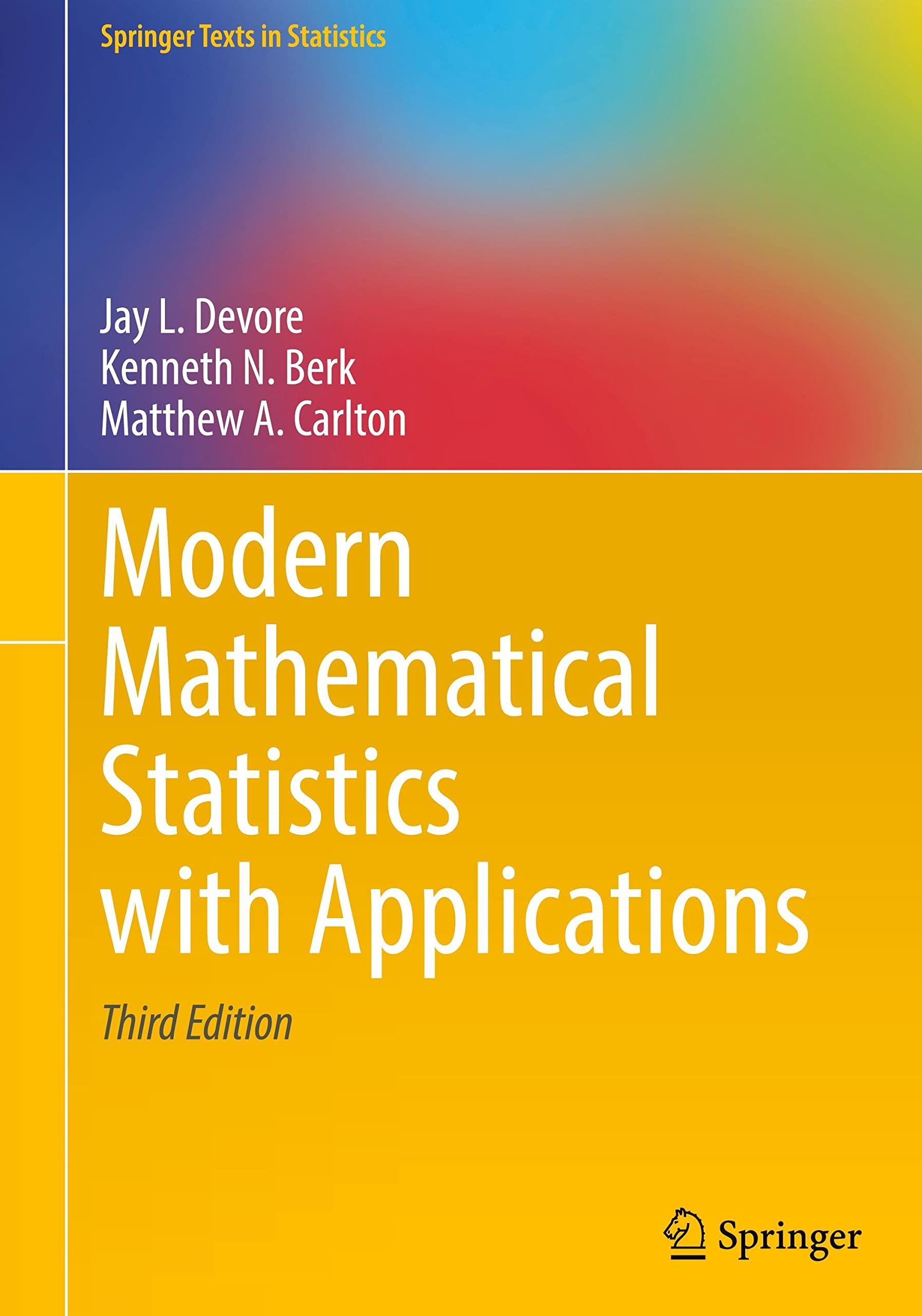A class has 10 mathematics majors, 6 computer science majors, and 4 statistics majors. A committee of
Question:
A class has 10 mathematics majors, 6 computer science majors, and 4 statistics majors. A committee of two is selected at random to work on a problem. Let X be the number of mathematics majors, and let Y be the number of computer science majors chosen.
a. Determine the joint probability mass function p(x, y). This generalizes the hypergeometric distribution studied in Section 3.6. Give the joint probability table showing all nine values, of which three should be 0.
b. Determine the marginal probability mass functions by summing numerically. How could these be obtained directly?
c. Determine the conditional probability mass function of Y given X = x for x = 0, 1, 2. Compare with the hypergeometric h(y; 2 − x, 6, 10) distribution. Intuitively, why should this work?
d. Are X and Y independent? Explain.
e. Determine E(Y|X = x), x = 0, 1, 2. Do this numerically and then compare with the use of the formula for the hypergeometric mean, using the hypergeometric distribution given in part (c).
f. Determine V(Y|X = x), x = 0, 1, 2. Do this numerically and then compare with the use of the formula for the hypergeometric variance, using the hypergeometric distribution given in part (c).
Step by Step Answer:

Modern Mathematical Statistics With Applications
ISBN: 9783030551551
3rd Edition
Authors: Jay L. Devore, Kenneth N. Berk, Matthew A. Carlton





